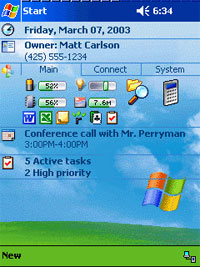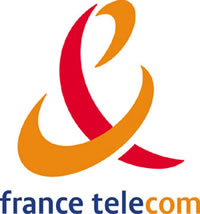 Yesterday the US Supreme Court published their 55-page decision in MGM v. Grokster case. The headline summary? The file-sharing software companies lost and the media companies won. Delve a little deeper and it becomes more confusion.
Yesterday the US Supreme Court published their 55-page decision in MGM v. Grokster case. The headline summary? The file-sharing software companies lost and the media companies won. Delve a little deeper and it becomes more confusion.
Predictably reaction has been mixed. The Motion Picture Association of America (MPAA) hailed the court’s ruling as a “historic victory for intellectual property in the digital age.” On the other side of the fence, the EFF reaction was an expected contrast, “Today the Supreme Court has unleashed a new era of legal uncertainty on America’s innovators,” said Fred von Lohmann, EFF’s senior intellectual property attorney. “The newly announced inducement theory of copyright liability will fuel a new generation of entertainment industry lawsuits against technology companies. Perhaps more important, the threat of legal costs may lead technology companies to modify their products to please Hollywood instead of consumers.”
Background – How have we got here
As is well documented, the US media companies have been taking legal people who have previous been their customers, accusing them sharing music and films without authorisation. In many cases these people, or their parents have opted to pay a thousands of dollars in damages to the music companies, rather than risk going to court to defend themselves.
The media companies have found this approach very expensive as each of the people using the filesharing software has to be tracked down and pursued individually. As the file-sharing networks have millions of people using them at any given times, this is not a realistic way for them to stop these actions.
The media companies have, through their well-know and influential political lobbying, attempted various approaches to stop their media being shared without their permission – the most extreme so far was trying to make using P2P software illegal in the US. Happily, so far, this extreme idea hasn’t been successful.
Broad-brush approaches like this hurt the innocent as well as the people the media companies want to stop. P2P software such as BitTorrent is simply more efficient, economical way to distribute large file, such as audio and video. Digital-Lifestyles often uses BitTorrent as it reduces our hosting charges, as people who download the file also become distributors of the file, reducing the load on our servers.
Taking the direct approach
While going after individuals has, in the eyes of the media companies, has been successful, it’s expensive and time consuming. Yesterday’s ruling was about going after the makers of the file-sharing software – with the logic being, if you close them down, people won’t be able to share files.
Back in 2001 28 of the world’s largest entertainment companies started this legal action against the makers of the Morpheus, Grokster, and KaZaA filesharing software products. A number of legal cases have already been fought in the lower US courts, with the most recent finding going in favour of the defending file-sharing companies – Grokster and StreamCast, makers of Morpheus.
The Electronic Freedom Foundation (EFF), who have been assisting the software companies in their defense, felt a precedent had already been made for this. Back in the 1984 the US film studios went after the makers of video recorders, claiming that if there were to be sold the whole of the film-making business would vanish. The Sony vs Universal Studios case, or The Betamax Case, as it has more popularly become known, ruled that the manufacturer of a piece of equipment could not be held liable of uses that might infringe copyright. In legal circles this is know as Secondary liability.
(By a twist of corporate fate, Sony now owns MGM)
Where we are now
The ruling yesterday appears to be contrary to the findings of the Betamax Case. Justice David Souter said “We hold that one who distributes a device with the object of promoting its use to infringe copyright, as shown by the clear expression or other affirmative steps taken to foster infringement, is liable for the resulting acts of infringement by third parties.”
 If a company makes and sells a device that is then used to distribute copyrighted material, the company is acting illegally.
If a company makes and sells a device that is then used to distribute copyrighted material, the company is acting illegally.
While the court case is about software, it is important to note that the ruling isn’t just about software, it talks of a ‘device’. So this ruling could have impact on any service or piece of equipment that handles copyrighted material, be that Google, TiVo, iPod, etc.
While the media companies have met the ruling with excitement and delight, others are quite as sure. The sticking point is the use of the word Intent.
John Barrett, Director of Research at Parks Associates told Tom’s Hardware “I suspect [litigants] will spend the next five to ten years arguing over what exactly is ‘intent.’ The issue is, is it enough if you make everybody digitally sign off on some disclaimer that says, ‘I’m not going to use it to trade illegal files?’” Will networks have to actively search for and purge illegal files, or filter out files from being disseminated, or only allow certified content to be traded? Barrett asks. “It’s going to be a mess, because you’ve got to start down that road where the P2P guys are obviously going to try to paper over something with some disclaimers and a few splashy warnings, that just get ignored by everybody.” By way of comparison Barrett added, “It’s the same thing as when you go to the college library, [and] you see this little sign by the Xerox machine saying, ‘Copyright infringement in this area is a crime, etc., etc.,’ and then everybody just copied the books and ignored the sign.”
Others have brought forward the comparison with gun manufacturers. When guns are designed and manufactured these companies are not called to account when someone is shot dead by one of their products – considerably more serious that someone copying a piece of music or a film. The cited argument is “Guns don’t kill people, people do.”
 What the future will hold?
What the future will hold?
Well, the debate will rage on both sides as to the long terms effect of this ruling.
On the legal front, the case has been sent back down to lower courts in the US, where the future fate of the file-sharing companies could be sealed.
Beyond that, many man-years of chargeable legal hours will be racked up as spectrum of companies try to understand how they are effected.
Many companies or trade organisation that have any thing to do with Intellectual Property Rights (IPR) will come out in the press supporting the ruling, many other will come out decrying it.
There will be a lot of people in tech companies convening meetings attempting to work out if they or their products could be affected by this ruling. Companies will examine their own internal processes in an attempt to understand if they could be found guilt of providing intent of copyright infringement.
As to whether this will impact the very existence of innovate start-up companies in the US, as Cory Doctorow claimed in a piece in Popular Science, can only be reveled with time, “what today’s decision will kill is American innovation. Chinese and European firms can get funding and ship products based on plans that aren’t fully thoughtcrime-compliant, while their American counterparts will need to convince everyone from their bankers to the courts that they’ve taken all imaginable measures to avoid inducing infringement.”
Supreme Court ruling (PDF)
MGM
Grokster
EFF
 Google has launched an updated beta version of its personalised search tool that learns from your history of searches and search results you’ve clicked on, shuffling more relevant results to the top of the page.
Google has launched an updated beta version of its personalised search tool that learns from your history of searches and search results you’ve clicked on, shuffling more relevant results to the top of the page. Clearly, there could be a shedload of potential privacy concerns here with the search history feature compiling a detailed list of every page you’ve ever searched for, but sneaky surfers hoping for a bit of discrete titillation can sign out of the personalised search service, pause it or remove it through their accounts page.
Clearly, there could be a shedload of potential privacy concerns here with the search history feature compiling a detailed list of every page you’ve ever searched for, but sneaky surfers hoping for a bit of discrete titillation can sign out of the personalised search service, pause it or remove it through their accounts page. Mobile download site Handango has announced the winners of their Champion Awards at the fifth annual Handango Partner Summit.
Mobile download site Handango has announced the winners of their Champion Awards at the fifth annual Handango Partner Summit. For the Palm platform, the winners included Snapper Mail Deluxe in the ‘work application’ category, with Pocket Tunes Deluxe scooping up the ‘Play’ category.
For the Palm platform, the winners included Snapper Mail Deluxe in the ‘work application’ category, with Pocket Tunes Deluxe scooping up the ‘Play’ category. The comprehensive MobiLearn Talking Phrasebook, a talking multi-language phrasebook for the Pocket PC with “pure native voices”, snagged the “Best Industry Application” award.
The comprehensive MobiLearn Talking Phrasebook, a talking multi-language phrasebook for the Pocket PC with “pure native voices”, snagged the “Best Industry Application” award.
 The spokesman added that customer’s email services will be uninterrupted, with users still contactable whatever their domain name.
The spokesman added that customer’s email services will be uninterrupted, with users still contactable whatever their domain name. Yesterday the US Supreme Court published their 55-page decision in MGM v. Grokster case. The headline summary? The file-sharing software companies lost and the media companies won. Delve a little deeper and it becomes more confusion.
Yesterday the US Supreme Court published their 55-page decision in MGM v. Grokster case. The headline summary? The file-sharing software companies lost and the media companies won. Delve a little deeper and it becomes more confusion. If a company makes and sells a device that is then used to distribute copyrighted material, the company is acting illegally.
If a company makes and sells a device that is then used to distribute copyrighted material, the company is acting illegally. What the future will hold?
What the future will hold? Vidiator Technology has declared a “world first” for their VeeStream mobile music video service, launched in Scandinavia.
Vidiator Technology has declared a “world first” for their VeeStream mobile music video service, launched in Scandinavia. After launching with an audio service in May 2005, video is scheduled to follow in June with radio coming in July.
After launching with an audio service in May 2005, video is scheduled to follow in June with radio coming in July. With the 3GPP/3GPP2 compliant VeeStream being player-agnostic, mobile streaming can be enabled to a broader range of networks and devices, which should bring costs down for wireless operators.
With the 3GPP/3GPP2 compliant VeeStream being player-agnostic, mobile streaming can be enabled to a broader range of networks and devices, which should bring costs down for wireless operators. Long shunned as hobby-obsessed lonely losers living in messy bedrooms with a dreadful taste in music, geeks, computer spods and sci-fi nuts have revealed themselves as a lucrative target for advertisers.
Long shunned as hobby-obsessed lonely losers living in messy bedrooms with a dreadful taste in music, geeks, computer spods and sci-fi nuts have revealed themselves as a lucrative target for advertisers. The bigwigs of Sci-Fi conducted the research to try and work out the popularity of the multi-billion dollar genre when it was supposedly the province of “solitary, unpopular individuals with niche interests and questionable personal hygiene habits.”
The bigwigs of Sci-Fi conducted the research to try and work out the popularity of the multi-billion dollar genre when it was supposedly the province of “solitary, unpopular individuals with niche interests and questionable personal hygiene habits.” The bit that will get the advertisers moist in their strap lines is the fact that geeks are 90% more likely to be the first among their chums to invest in new products.
The bit that will get the advertisers moist in their strap lines is the fact that geeks are 90% more likely to be the first among their chums to invest in new products. In a cornucopia of convergence, BT has announced their intention to use the Microsoft TV Internet Protocol Television (IPTV) Edition software platform to deliver TV over broadband in the UK. Internally within BT, the project is referred to as Project Nevis.
In a cornucopia of convergence, BT has announced their intention to use the Microsoft TV Internet Protocol Television (IPTV) Edition software platform to deliver TV over broadband in the UK. Internally within BT, the project is referred to as Project Nevis. As the sound of mutual backslapping threatened to reach ASBO-generating levels, Moshe Lichtman, corporate VP of the Microsoft TV division gushed:
As the sound of mutual backslapping threatened to reach ASBO-generating levels, Moshe Lichtman, corporate VP of the Microsoft TV division gushed: Last weekend there was a report that France Telecom (FT) were rumored to be buying Cable and Wireless (C&W) for GBP 4bn. FT has of course denied it.
Last weekend there was a report that France Telecom (FT) were rumored to be buying Cable and Wireless (C&W) for GBP 4bn. FT has of course denied it. One area where they have invested in and have made real progress is Local Loop Unbundling (LLU) with their purchase of Bulldog (for GBP 18m). Bulldog have now unbundled about 400 exchanges and have plans to unbundle another 400 by the end of the year.
One area where they have invested in and have made real progress is Local Loop Unbundling (LLU) with their purchase of Bulldog (for GBP 18m). Bulldog have now unbundled about 400 exchanges and have plans to unbundle another 400 by the end of the year. Wanadoo (the ISP arm of FT) has stated they are going to invest EU 300m in unbundling exchanges (in the first year) and rumour has it there’s a total of EU 1bn over 3 years for LLU. So FT could buy C&W just for the LLU aspects, but really does seem excessive. C&W bought Bulldog for GBP 18m and they’ve invested at least 10’s of million into them. So 4bn is a HUGE premium to pay for a ready made network and 10’s of thousands of customers. Wanadoo already have considerably more broadband customers than Bulldog.
Wanadoo (the ISP arm of FT) has stated they are going to invest EU 300m in unbundling exchanges (in the first year) and rumour has it there’s a total of EU 1bn over 3 years for LLU. So FT could buy C&W just for the LLU aspects, but really does seem excessive. C&W bought Bulldog for GBP 18m and they’ve invested at least 10’s of million into them. So 4bn is a HUGE premium to pay for a ready made network and 10’s of thousands of customers. Wanadoo already have considerably more broadband customers than Bulldog. The announcement of the Finnish 450 MHz cellular data licence isn’t today’s surprise; the surprise is that Flarion – the technology provider – is not announcing that Flash-OFDM is now an ITU standard. There should have been such an announcement: why the delay?
The announcement of the Finnish 450 MHz cellular data licence isn’t today’s surprise; the surprise is that Flarion – the technology provider – is not announcing that Flash-OFDM is now an ITU standard. There should have been such an announcement: why the delay? Official details of the announcement include optimistic pronouncements from Flarion, but nothing about what really matters: the need for the Flarion Flash-OFDM technology to be a standard.
Official details of the announcement include optimistic pronouncements from Flarion, but nothing about what really matters: the need for the Flarion Flash-OFDM technology to be a standard.